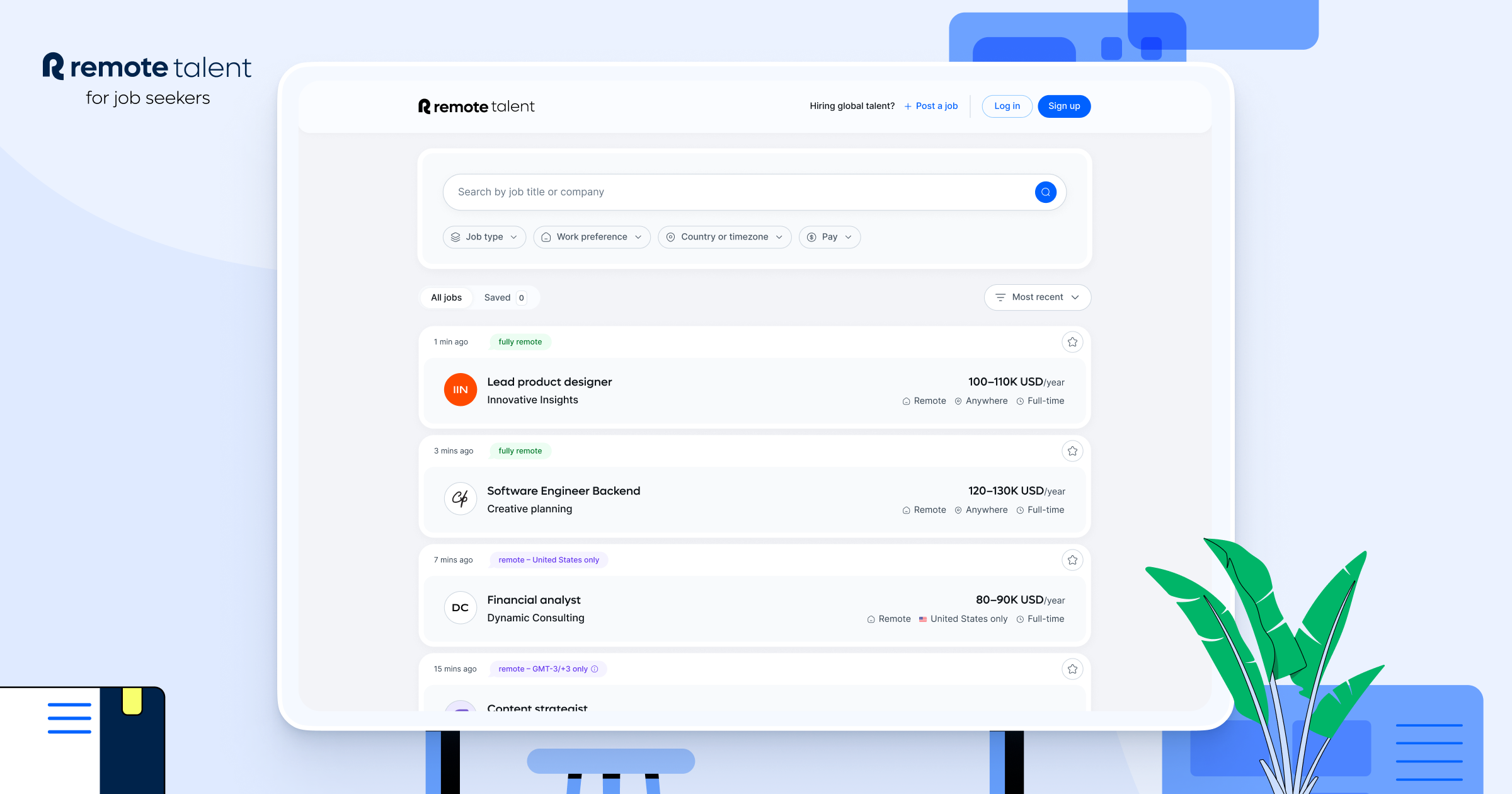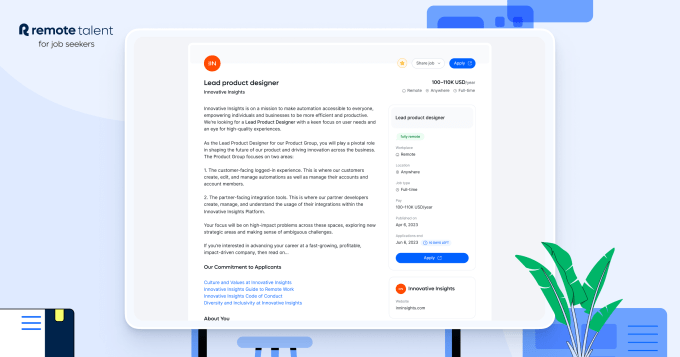Remote, the HR tech company that allows companies to hire, manage and pay remote workers, is launching a remote job marketplace called Remote Talent.
CEO and co-founder Job van der Voort said it seemed pretty obvious for someone named Job running a company called Remote to launch a remote job board. Why (only) now, then? Perhaps because Remote has reached a point where this kind of initiative no longer feels like a potential distraction from its core business. After all, Remote also has competitors, such as Deel.
To be clear, the job board is very much connected to Remote’s fundamentals; it is fully integrated with its global HR platform, meaning that companies can onboard, manage and pay their new hires through Remote. But the job board doesn’t have its own revenue goals, for instance, van der Voort said.
That’s probably for the better; monetizing a remote job board seems hard, considering how much demand there is compared to (good) offers. Remote Talent is free for candidates, so it won’t make money out of their eagerness.
While that’s a good thing, it wouldn’t be unfair to charge for a better job board that makes job location clear for candidates and saves them time. Not all job offers on Remote Talent have to be remote, but the company hopes to add value by removing the usual ambiguities of traditional job boards when it comes to flexible work and distributed teams (because no I don’t want to look for jobs based in Remote, Oregon).
Remote hopes to solve this with transparency and better search tools; for instance, job seekers will be able to filter by requirements about time zones, locations and travel. Too often, global candidates get frustrated by vacancies that are advertised as remote but require applicants to be based in or within a short distance of a certain location, most often the U.S., or even a specific U.S. state.

Image Credits: Remote
Despite this value add, monetizing the employer side makes sense, too. While companies offering remote jobs are usually swamped with applications, Remote included, they might still be interested in paying for a tool that lets them sift through applicants, find the right fit, and add them to payroll, no matter where they live.
That’s not exactly what Remote Talent does yet, at least not the candidate-filtering part, but it is not hard to see how it would be part of its roadmap in combination with Remote’s core offering.
Coming soon as well, the company says, are “new tools that integrate artificial intelligence to help candidates get discovered by top companies and matched with open roles, as well as integrated global knowledge to help companies make informed decisions about hiring and international compensation.”
That AI is involved in Remote Talent early on is no surprise; onstage at TechCrunch Disrupt in September, van der Voort had described the pragmatic but resolute approach his company takes to machine learning. As for compensation data, it is part of a broader trend that has the U.S. and EU increasingly pushing for pay transparency.

Image Credits: Remote
Of course, Remote won’t be able to single-handedly fix all of the challenges that aspiring remote workers face. But highlighting good employers and certain job characteristics, for instance, could also be a first step toward connecting global talent with better opportunities.
